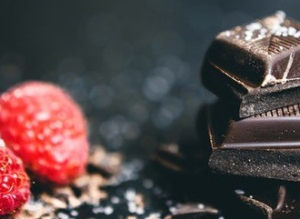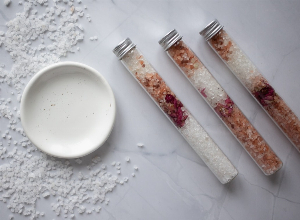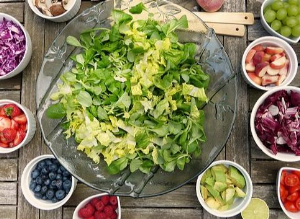Foods that can make you happy!
Published Apr 27, 2018 • Updated Aug 18, 2020 • By Léa Blaszczynski
What if there were "happiness" foods? Although there is no magic potion for happiness, the combination of certain foods can boost the production of serotonin, the "happiness hormone", in our brain.

Can we be happier because of the food we eat? Beyond the simple pleasure of eating and sharing good times, our meals can also help to improve our mood. How can we do this? By eating food that stimulates the production of serotonin, the happiness hormone. Here is some advice from the French book Prenez soin de vous maintenant ! Pour vivre heureux plus longtemps ("Take care of yourself now! How to live happier longer").
Foods rich in tryptophan
Serotonin is produced by our brain from an amino acid called tryptophan. The body does not produce it itself, so it must be obtained through our diet. This amino acid, which is the basic component of proteins, is found in many foods:
- Whole grain rice
- Legumes (soybeans, beans, peas, lentils), cruciferous vegetables (broccoli, cauliflower, Brussels sprouts)
- Eggs, dairy products, meat, fatty fish
- Dark Chocolate
- Bananas
- Nuts and seeds
How to stimulate the production of serotonin?
However, eating foods rich in tryptophan is not enough. This amino acid must then be able to reach and penetrate the brain in order to be used to produce serotonin. But, there are other amino acids competing to get through the same "door". The way to facilitate the entry of tryptophan over others is to eat foods containing carbohydrates:
- Grains, rice, bread, pasta, potatoes, corn
- Legumes
- Dried fruit
- Honey
Consuming carbohydrates triggers the release of insulin that will "divert" competing amino acids from the bloodstream. They will be sent to the muscles, allowing the tryptophan to access the brain. But it's not over here! It is possible to give our amino acids another little boost so that they can best be converted into serotonin.
This conversion requires two enzymes which, in turn, need co-factors to function. These co-factors can also be provided by food.
- Cofactors of the tryptophan hydroxylase enzyme: vitamin B9, iron, vitamin B3, calcium
- Cofactors of the decarboxylase enzyme: zinc, vitamin B6, magnesium, vitamin C
Vitamin D and Omega 3, powerful allies
Two other substances also improve the performance of this entire production chain.
- Vitamin D: It boosts the gene responsible for manufacturing the two enzymes that convert tryptophan into serotonin. Vitamin D is mainly found in fish, eggs and dairy products.
- Omega-3 fatty acids: They promote serotonin by blocking the production of the opposite molecules, called prostaglandins, and by making the neuronal membranes on which serotonin acts more fluid. Omega-3s are mainly found in fatty fish and seafood.
An example of a "happiness plate"
So we've explained how the chemicals works, but how can you compose a meal that makes you happy? Don't panic, here are a few ideas to concoct a menu that will boost your serotonin production:
To do this, prepare a nice plate of whole grain rice mixed with lentils (green or red) and a fatty fish like salmon. This will fill you up with tryptophan, carbohydrates, vitamin D and omega-3. In addition, this combination will provide your body with many of the co-factors necessary for serotonin production.
For dessert, try some dried fruit with a large square of chocolate for extra iron, carbohydrates and tryptophan. Finish off with an orange to fill up on vitamin C!
These recommendations may conflict with dietary restrictions specific to a chronic condition. This article is not a medical prescription. Consult your doctor!
Source : Prenez soin de vous maintenant ! Pour vivre heureux plus longtemps, édition Flammarion, écrit par Eric Dupont, Diane Bilodeau Christine Michaud, et Christian Forton, (respectivement chercheurs, conférencière, et médecin)
Comments
You will also like

Spoon theory: What is it and how can it help people living with chronic illness?
Apr 13, 2022 • 7 comments

 Facebook
Facebook Twitter
Twitter

